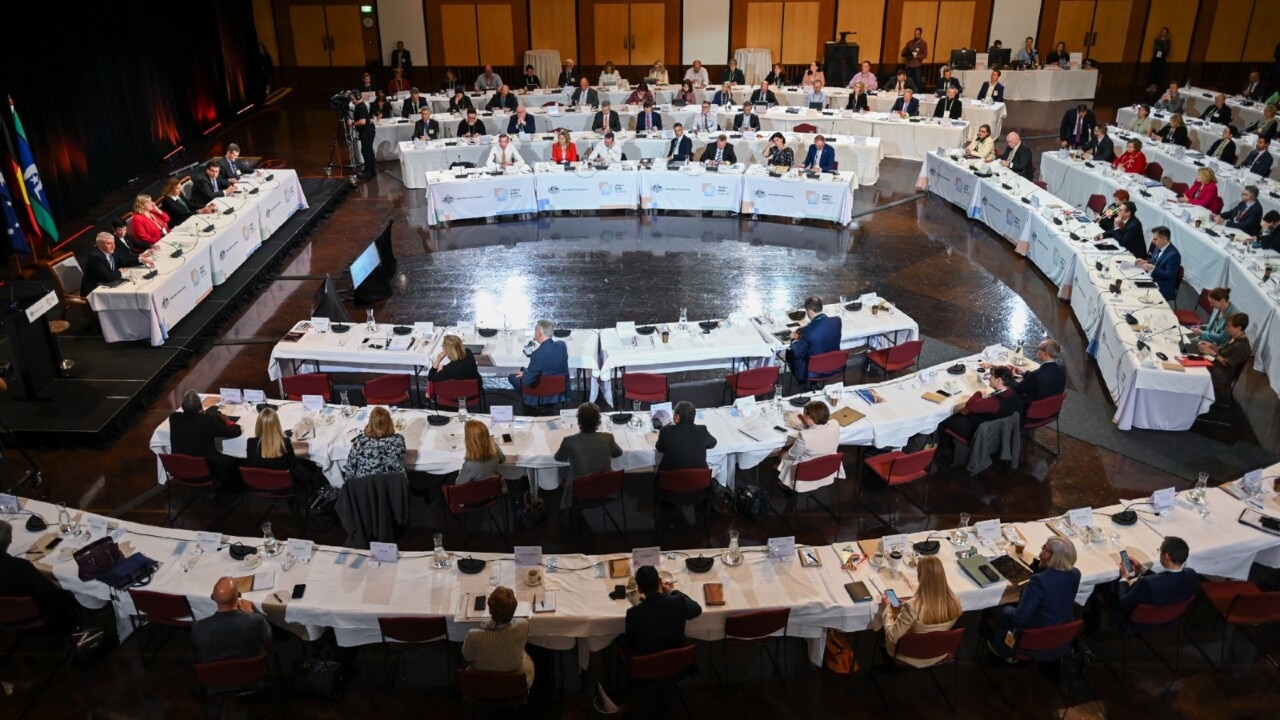James Campbell: Labor makes jobs easier for its boys
You’ve got to give Labor ministers credit. Unlike the other mob, they know who their masters are and have wasted no time delivering for them, writes James Campbell.

Opinion
Don't miss out on the headlines from Opinion. Followed categories will be added to My News.
Perhaps the strangest thing about the recently ejected Liberal and National Party government is that, while virtually the only thing that the members of those two parties have in common is a deep and abiding hatred of Australia’s industrial relations system, it never tried seriously to change it.
The reason for the reluctance to tamper with the IR system bequeathed by Julia Gillard and Bill Shorten was simple: Fear.
In 2007 John Howard and his ministers were thrown out by the ACTU’s campaign against the WorkChoices regime they had sprung on the electorate after they surprised everyone – including themselves – by winning control of the Senate at the 2004 election. That debacle left Coalition MPs with the settled view that IR is a red-hot stove best left alone. It wasn’t as though big business was agitating loudly for radical change either.
They mightn’t have loved it but they found they could live with it.
Small business hated it of course but no surprise there. Moreover it turned out the regime had a feature that employers liked. If negotiations over enterprise agreements dragged on for long enough after their expiry date, bosses could simply apply to have them terminated, kicking workers back onto awards.
Sure, the process was very time- consuming and expensive but the law – upheld by the courts was clear – out-of-agreements were open to cancellation. IR folk who sit on the bosses’ side of the table will tell you moving to cancel an agreement was a last resort only reached for in the face of a union’s bloody-minded refusal to accept change.
Unions, on the other hand, say that while it’s true to say now that many EAs ended up being binned, in many cases the threat was enough to force workers to give way to demands that hurt them. The truth is probably somewhere in between.
What is true is that while the Coalition was reluctant to tinker with Labor’s IR laws it was making slow but steady progress in ensuring it was interpreted by like-minded Fair Work Commissioners and Federal Court judges. But even here there were limits to what it could achieve. Throughout the Abbott-Turnbull-Morrison years the Chief Justice of the Federal Court of Australia remained James Allsop and the President of the Fair Commission stayed Ian Ross, both appointed by Labor in 2012.
What moves the holders of these offices when they determine the full benches that hear appeals in their jurisdictions is a mystery known unto God. All one can say with absolute certainty is that if Scott Morrison had won in May he was looking forward to appointing their successors, as must happen during the term of this parliament.
Alas for him it was not to be, the next bums to occupy these seats will be chosen by Albo and his ministers.
And as we learned at last week’s Jobs Summit, the IR laws they will be called on to interpret will be different to Shorten’s, with a return to a form of pattern bargaining and a simplification to the Better-Off-Overall-Test. The changes to the BOOT are long overdue. It’s pattern bargaining that gets everyone steamed up. Under the current law that is defined as “conduct by a person who is a negotiating party to two or more proposed enterprise agreements, seeking common wages or conditions for two or more of those agreements, where the conduct extends beyond a single business”.
The Fair Work website explains it’s not actually illegal, it’s just it “denies protection to industrial action taken in support of it, and makes specific provision for the grant of an injunction to stop or prevent such action”.
In other words you can’t at present have industry-wide strikes in support of a pay claim.
This will change. Does this mean we are going to go back to the industrial chaos of the 1970s?
We’ll see about that. On the face of it, it will make industry-wide strikes more likely. But running a successful strike is not just a matter of law, it takes organisation.
Unless a union has members in a firm and delegates prepared to lead them, it’s pretty hard to run a strike.
And a union movement with only 10 per cent of employees as members is not going to be in much of a position to enforce its will on the coalface. In the industries where no-ticket-no-start still reigns – the wharves and construction for example – pattern bargaining never went away, so the change won’t make much difference.
The big effect of the change will be to make it easier for unions to negotiate with employers without them having to do the difficult work of actually getting people to join.
In other words, when the noisy complaints from employers have died away, the chances are the only effect will be to make the lives of a few snoozy union officials a bit easier. Which, I suspect, is the whole point.
Still, you’ve got to give Labor ministers credit.
Unlike the other mob, they know who their masters are and have wasted no time delivering for them.
Jobs Summit has given unions what they wanted
This is a Labor government, so we shouldn’t be surprised its summit has delivered the trade union movement the substance of what it wanted, namely a return to industry-wide union-negotiated pay deals.
Not that Albo actually needed a summit. The government has the power and almost certainly the numbers to legislate changes to the IR system.
As a Liberal Party figure joked after the communique was released, the past two days have been “union/business cosplay”.
That may be so but the changes will matter.
Australia’s workplace relations system is a bit like the UK’s National Health Service, a great national achievement beloved by much of the citizenry, which for some strange reason no else in the world has sought to copy.

The proposed changes will make it even more “unique”, which is to say rigid and bureaucratic.
Whether they will make it more likely we will see more strikes, as Liberals predict, is more debatable.
To run strikes in the private sector you need private sector union members, and nothing in this deal will change the fact that only 10 per cent of non-government workers can be bothered joining a union.
Moreover, in many of those industries like construction, where union membership is rigorously enforced, industry-wide agreements are already a fact of life, whatever the law says.
The other big outcome — the increase in the skilled migration numbers — didn’t need a summit either.
Nor did the expansion of TAFE — that’s a Commonwealth-state government matter.
Which isn’t to say this hasn’t been a big win for Anthony Albanese.
Getting business, unions and the NGOs to line up as the audience for his Bob Hawke tribute act was TV news gold and reminds everyone he’s in charge.
It’s a Labor Government, doing Labor things.
Get used to it.



